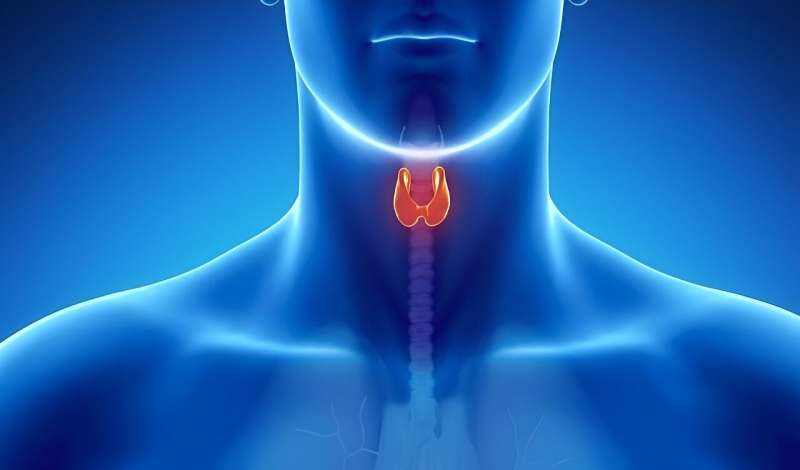For patients with newly diagnosed hyperthyroidism, surgery is associated with lower risks for major adverse cardiovascular events (MACE) and all-cause mortality, according to a study published online March 4 in JAMA Network Open.
Carol Chiung-Hui Peng, M.D., from the Boston University Chobanian and Avedisian School of Medicine, and colleagues conducted a nationwide cohort study involving patients aged 20 years or older with newly diagnosed hyperthyroidism between 2011 and 2020. The risks for MACE and all-cause mortality were compared for those treated with antithyroid drugs (ATDs), radioactive iodine (RAI), or surgery.
Of the 114,062 patients with newly diagnosed hyperthyroidism, 93.9, 1.1, and 5.1 percent received ATDs alone, received RAI, and underwent surgery, respectively, during a mean follow-up of 4.4 years.
The researchers found that compared with patients receiving ATDs, those undergoing surgery had a significantly lower risk for MACE, all-cause mortality, heart failure, and cardiovascular mortality (hazard ratios, 0.76, 0.53, 0.33, and 0.45, respectively). RAI was associated with lower MACE risk compared with ATDs (hazard ratio, 0.45). The treatment groups had no significant difference in risks for acute myocardial infarction or stroke.
"These findings suggest that surgery or RAI may be better options than long-term ATD treatment in patients with hyperthyroidism who are at risk of MACE," the authors write. "However, these findings should be interpreted with caution owing to the retrospective, observational nature of the study design, which precludes the evaluation of causal relationships."
More information: Carol Chiung-Hui Peng et al, MACE and Hyperthyroidism Treated With Medication, Radioactive Iodine, or Thyroidectomy, JAMA Network Open (2024). DOI: 10.1001/jamanetworkopen.2024.0904
Journal information: JAMA Network Open
Copyright © 2024 HealthDay. All rights reserved.
























